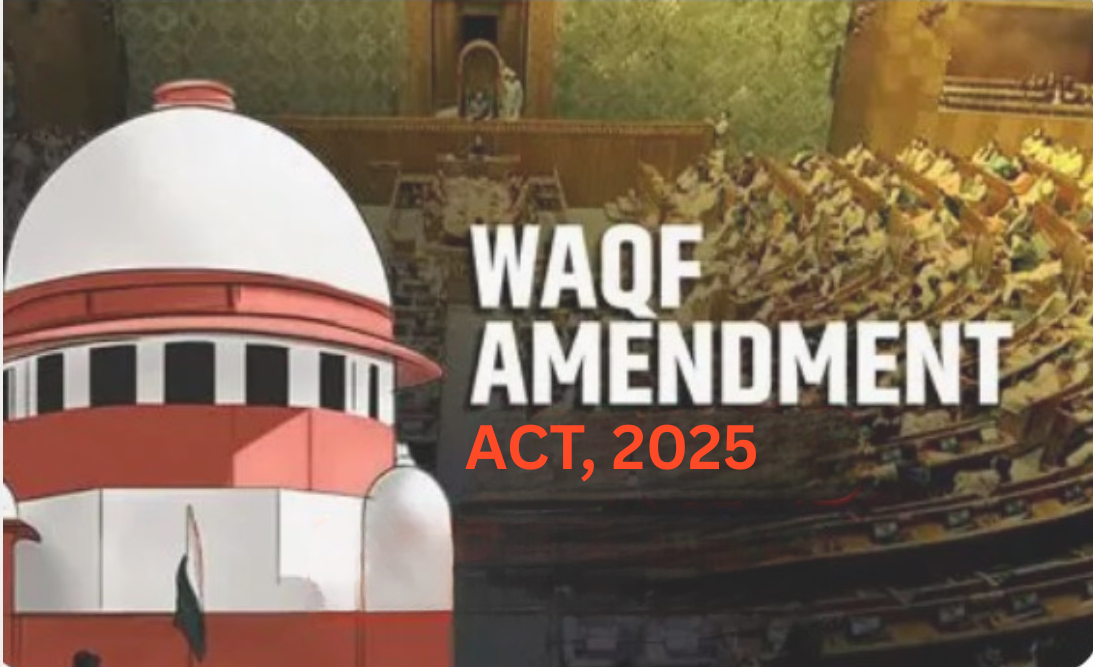The Supreme Court of India is scheduled to hear on Monday, May 5, 2025, a batch of petitions challenging the constitutional validity of the Waqf (Amendment) Act, 2025. This hearing comes after the Central Government agreed to temporarily pause two key provisions of the controversial law, following intense scrutiny from the apex court.
On April 17, Solicitor General Tushar Mehta, appearing for the Centre, assured a bench comprising Chief Justice Sanjiv Khanna, and Justices Sanjay Kumar and K.V. Viswanathan that the government would neither denotify waqf properties—including those classified as ‘waqf by user’—nor make any appointments to the Central Waqf Council or State Waqf Boards until May 5.
The Centre opposed the Supreme Court’s earlier suggestion to pass an interim stay on provisions allowing:
-
Denotification of waqf properties, and
-
Inclusion of non-Muslims in the Central Waqf Council and boards.
Key Issue: ‘Waqf by User’
A major point of contention is the provision related to ‘waqf by user’, a practice where properties are declared as waqf based solely on their long-term, uninterrupted use for religious or charitable purposes, even in the absence of formal documentation.
The Supreme Court remarked that denotifying such properties could become a “huge problem”, and ordered that no such denotification should occur until further hearing.
Also Read: Behind the Waqf (Amendment) Act: Supreme Court Insights, Legal Loopholes & Controversies 2025
Government’s Stand
In its 1,332-page counter-affidavit filed on April 25, the Ministry of Minority Affairs defended the Act, stating it was passed after due parliamentary deliberation and should be presumed constitutional. It warned against a blanket stay that might amount to “judicial legislation”.
The Centre highlighted that:
-
Registration of waqf properties has been mandatory since 1923, including those under ‘waqf by user’.
-
There has been alleged misuse of waqf laws to claim private and public land.
-
Post the 2013 Waqf Amendment, there was a 116% surge in waqf land claims—from 18.29 lakh acres to over 20.92 lakh acres.
Objections and Criticism
The All India Muslim Personal Law Board (AIMPLB) has strongly contested the government’s data, calling it factually incorrect and requesting action against officials responsible for submitting what it termed a false affidavit.
Meanwhile, over 70 petitions have been filed against the Waqf (Amendment) Act. However, the court decided it would only hear five key petitions, including one filed by AIMIM chief and Hyderabad MP Asaduddin Owaisi.
Background and Political Divide
The Waqf (Amendment) Act, 2025, received Presidential assent on April 5, 2025, and was passed in:
-
Lok Sabha with 288 votes in favour and 232 against.
-
Rajya Sabha with 128 votes in favour and 95 against.
Several political parties—including the DMK, YSRCP, AIMIM, Left parties, and civil society organisations—have challenged the law, citing constitutional violations and religious concerns.

